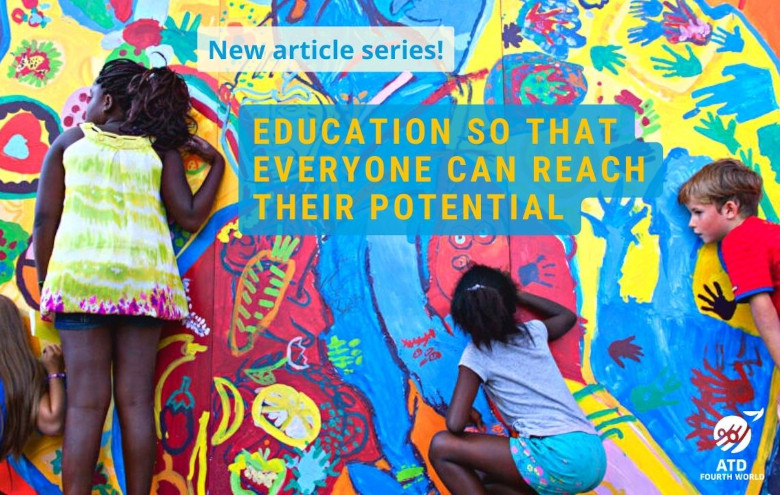Seeds of Hope Preschool

Since the early 2010s, access to quality education for all has been at the heart of ATD Fourth World’s priorities. In this series, you will learn about the work of ATD Fourth World teams in education, including early childhood education.
This website will feature regular publications showcasing ATD Fourth World’s educational achievements in the months ahead. These accounts tell the story of ATD Fourth World initiatives and demonstrate the teams’ collaboration with children, families, and communities.
We will continue to explore the work of teams dedicated to supporting specific aspects of children’s lives and development. One team aims to reinforce family ties, another assists with children’s schooling and academic success, while another contributes to the cultural enrichment of neighborhood children…
Each of these narratives threads together to form a vibrant framework for a society that can offer quality education for all — including children in poverty.
The final part of the series focuses on programs that enhance a school’s capacity to support its most vulnerable children effectively (Tanzania, Ang Galing in the Philippines, the preschool in Haiti, and Brazil).
Seeds of Hope preschool, Port-au-Prince
This month’s story is written by a teacher at ATD Fourth World’s preschool in Port-au-Prince, Haiti. It illustrates the dual success of the school, which:
- Enables children from families living in persistent poverty to really learn in a school system where “many pupils, especially in poor communities, acquire little knowledge during their schooling;”1
- Creates a space for educational innovation that is accessible to parents living in poverty. Teachers are able to build connections with parents in a school system that, to the detriment of the children, traditionally separates teachers from parents.
Today, the Seeds of Hope preschool is still operative, despite the current political instability and insecurity in Port-au-Prince. Philimène is a teacher at the preschool, and through her description of one child’s journey (a young boy named Jòjy), Philimène offers valuable insights into the strengths of this ATD Fourth World project.
The project was set up over 20 years ago in a neighborhood of informal settlements (formerly known as shanty towns), in front of the home of a local mother. At the time, the preschool was an informal activity designed to engage and inspire the neighborhood’s young children. Year after year, the organizers refined the program, incorporating feedback from both parents and children, and gradually shaped it into a more structured and formal program.
After years of responding to children’s needs and parents’ aspirations, the preschool has become a treasured space for both learning and connection. It belongs as much to the families who fiercely support it as it does to the teachers who see it as a place to pursue their commitment to an inclusive and peaceful society.

